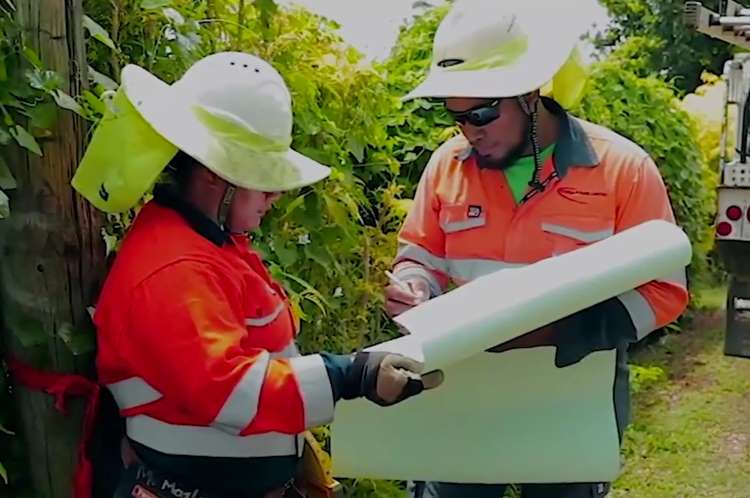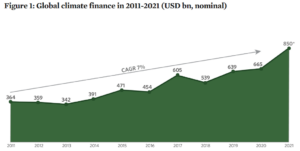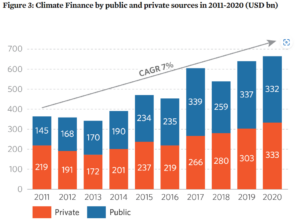
Climate finance is a critical force in combating climate change, which has a disproportionate impact on the most vulnarable sections of the society. The voices of such sections remain unheard despite urgent calls for action. Inequalities inherent in climate finance projects exacerbate the disparities, deepening the societal divide. Yet, these challenges present a unique opportunity for transformative action that incorporates gender equality, disability, and social inclusion into climate finance’s core.
To mitigate the threat of climate change, the world requires prompt, robust action and significant resources. Disparities in climate finance intensify vulnerabilities and sideline marginalised communities. Women, indigenous people, and individuals with disabilities bear the brunt of climate impacts disproportionately, highlighting the need for inclusive strategies in climate finance.
READ I Big 3 hegemony: India must push for fair, transparent credit rating
Why gender equality and disability inclusion matter
Consider this: women represent 80% of climate refugees worldwide, primarily affected by climate-induced displacement. Indigenous communities which protect 80% of the world’s biodiversity face increasing threats to their lands due to climate change. Additionally, individuals with disabilities, who make up 15% of the global population, experience enhanced vulnerability during climate crises, often struggling to access emergency services.
The current allocations of climate finance barely address the specific needs of these groups. Only 1% of climate finance supports disability-inclusive projects, revealing a significant gap in aid for this vulnerable population. Gender disparities are also stark, with a mere 0.01% of global funding dedicated to projects addressing both climate change and gender inequality.
Despite these challenges, there is hope in innovative approaches and dedicated initiatives. The Asian Development Bank (ADB) leads by example, integrating gender perspectives into 68% of its Climate Investment Funds projects in the Indo-Pacific region. Similarly, collaborative efforts like the Indo-Pacific Triangular Cooperation Fund, led by India and France, prioritise gender equality in climate action.
Success stories in inclusive climate finance
In India, state action plans on climate change (SAPCCs) show varying approaches to gender inclusion. Some states portray women primarily as victims, while others recognise them as agents of change, driving adaptation within communities. The Green Climate Fund’s (GCF) structured framework for integrating gender equality, disability, and social inclusion (GEDSI) into project design also stands out as a proactive step toward reducing disparities in climate finance.
To close the gap in climate finance and enhance inclusivity, stakeholders must adopt comprehensive strategies that include direct financing mechanisms and foster environments conducive to gender and disability inclusion. Strategies range from small grants for local organisations to robust gender equality initiatives within finance ministries.


Recognising the unique vulnerabilities and capabilities of different groups is essential. Women often have distinct roles in households and communities, affecting their experiences and adaptation capacities during climate impacts. Similarly, individuals with disabilities may face barriers in accessing resources during climate disasters, necessitating tailored interventions.
Involving marginalised groups in decision-making and project implementation ensures that initiatives reflect the priorities and realities of those most affected by climate change. This participatory approach enhances the relevance and legitimacy of interventions, building local resilience over time.
Investing in gender and disability-inclusive climate projects also yields broader social and economic benefits. Such initiatives empower women as change agents and promote the rights and inclusion of individuals with disabilities, contributing to more equitable societies. Moreover, they address the underlying causes of gender and disability inequalities, supporting sustainable development and enhancing climate resilience for all.
Investing for a sustainable future
Inclusive climate finance initiatives not only foster social equity but also catalyse economic growth. By incorporating marginalised communities into climate resilience efforts, these initiatives unlock new economic opportunities and enhance workforce diversity. For example, empowering women in sustainable agriculture or renewable energy projects can lead to more innovative solutions and stronger economic outcomes. Such investments in marginalised communities are not just ethical; they are economically prudent as they stimulate local economies and contribute to overall national growth.
Addressing disparities in climate finance requires a holistic approach that considers the intersecting challenges faced by marginalised groups. Initiatives focusing on gender and disability inclusion can significantly boost resilience and promote social equity and sustainable development.
Technological innovation plays a pivotal role in enhancing the impact of inclusive climate finance. By leveraging advanced technologies, we can develop more effective tools for climate adaptation and mitigation that are accessible to all. This includes innovations in early warning systems that are user-friendly for individuals with disabilities, or digital platforms that enable women in remote areas to access climate finance and resources. Technology thus serves as a bridge, making climate resilience strategies more inclusive and effective.
Inclusive climate finance is not only a moral imperative but also a practical necessity in the face of climate change. By incorporating gender and disability perspectives into finance mechanisms and project design, we can ensure that the most vulnerable are not left behind, and our efforts to build a resilient and sustainable future are truly inclusive and equitable. As we confront the pressing challenges of climate change, we must remember that our actions today will shape the world for future generations.
(Sankalan Dey is a Research Associate working for CUTS International, a global public policy research and advocacy group.)
